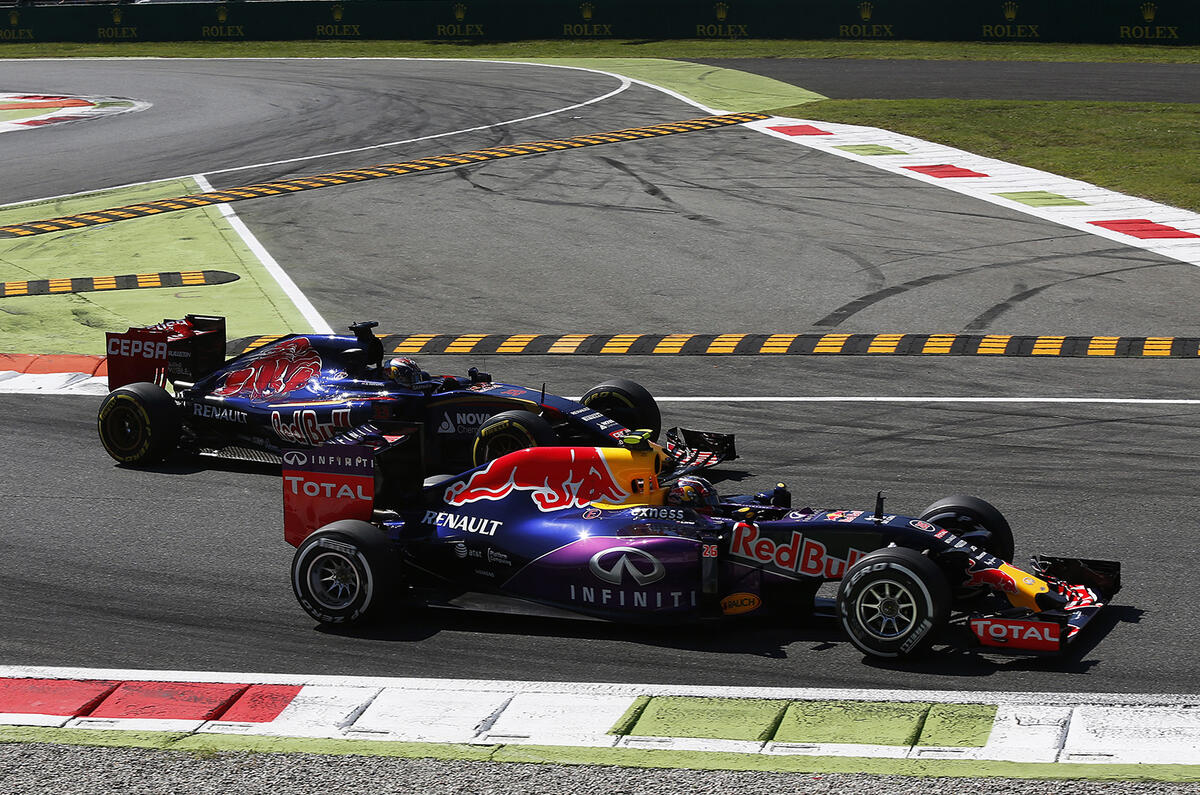Max Verstappen’s promotion to Red Bull Racing felt like a good ‘old-fashioned’ Formula 1 news story when it was announced. It wasn’t so much what had happened, but the timing of it that spoke volumes.
Grand prix racing is as ruthless an exponent of the evolutionary theory as you will find in top level sport. It is an environment where even talented, highly rated drivers can be dispensed with to make way for a sparkling, once-in-a-generation prodigy. It remains a matter of opinion, rather than record, as to whether Max Verstappen measures up to that bill - although the evidence suggests he could do - and Red Bull’s hard-nosed driver manager Helmut Marko obviously believes this is the time for him to show it. Daniil Kvyat is the man to suffer as a result.
But when observed through the Darwinian prism, it’s not at all surprising to see Red Bull promote the exciting Dutchman, all but 18, to its multiple championship-winning ‘A-Team’ in place of the Russian who has been moved back to Toro Rosso - effective immediately - in spite of his recent podium in the Chinese Grand Prix.
As of next weekend’s Spanish Grand Prix, Verstappen will sit in the opposite side of the garage to established three-time grand prix winner Daniel Ricciardo - a move which may ultimately give everyone a clearer barometer with which to measure the depth of both drivers’ ability.
Red Bull's Adrian Newey speaks about his road car project with Aston Martin
No specific reason has been given for the switch of the two drivers within the Red Bull campus, but Kvyat’s move south comes off the back of a disastrous Russian grand prix in Sochi. In his home race he twice crashed into Ferrari’s Sebastian Vettel, the four-time world champion himself a product of the Austrian energy drinks company’s talent ladder.
That said, it may be a mistake to assume that Kvyat’s form is in fact the reason for Verstappen’s promotion. Red Bull clearly believes the latter brings something special to the mix.
It’s been clear for a while that Verstappen has megastar potential. His ability to manage a car’s changing trajectory, dance it comfortably on the edge of oblivion and carry uncommon momentum through the apex of corner is all part of a complex, confident psychological make-up that always seems prominent in the precocious drivers.
Experts like Sky commentator and ex-F1 driver Martin Brundle have for some time compared Verstappen to Ayrton Senna in both his exciting on-track approach and his single-minded, unflustered off-track conviction. And you could argue that there are some similarities with Michael Schumacher’s rise to prominence.
Schumacher’s break famously came at Spa in 1991, when he stood in for the incarcerated Bertrand Gachot at Jordan. He qualified seventh on his first visit to the challenging Belgian circuit, having spent just a single day testing a Formula 1 car. Two weeks later he had taken Roberto Moreno’s seat at Benetton. At the time some were up in arms about the injustice of it all. Moreno, after all, is a lovely guy and one not without gift behind a wheel. But after seven world championships no one thought it was the wrong decision to sign Schumacher.




Join the debate
Add your comment
Matter of opinion, rather than record
So...........?
Kvyat's poblem was...